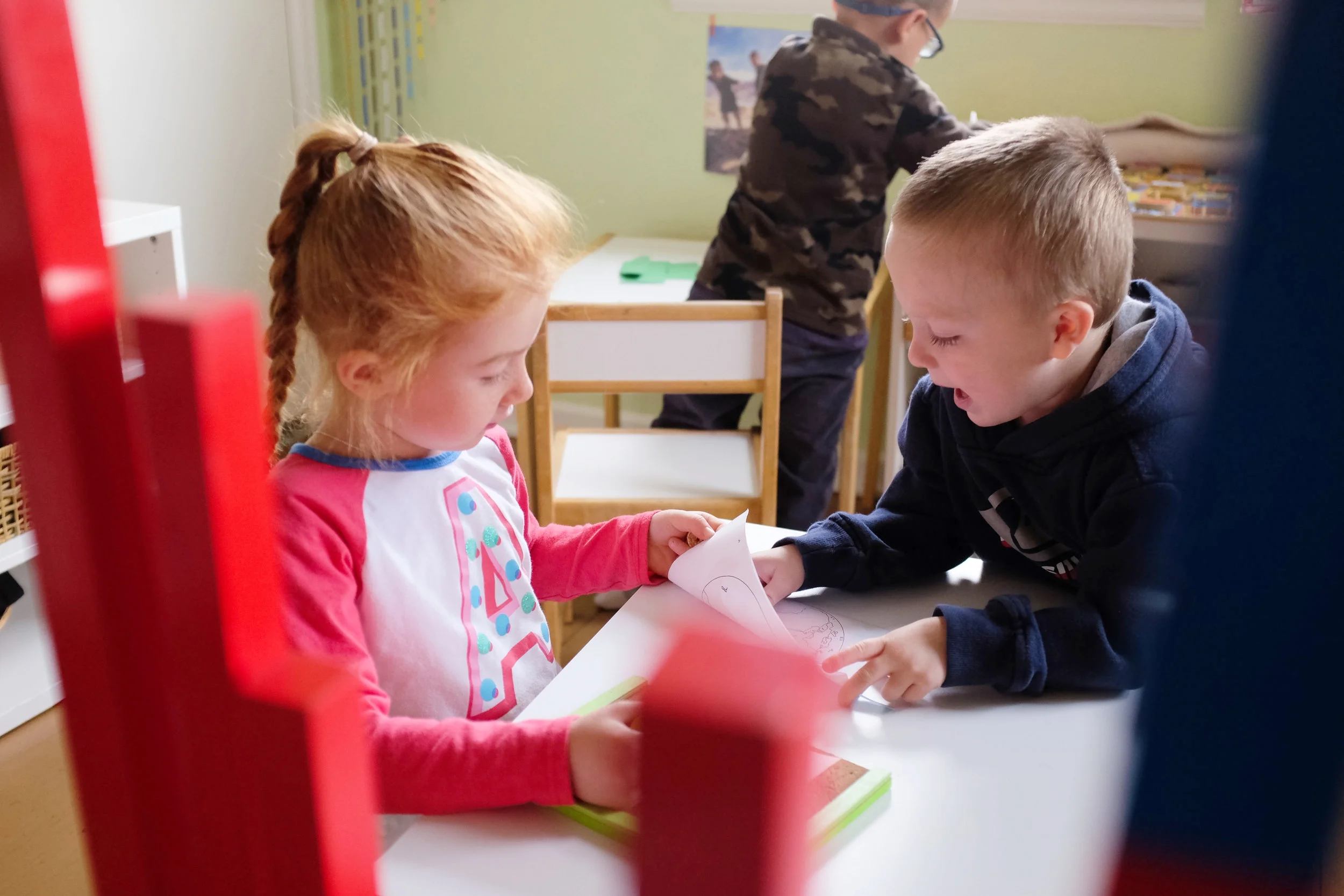Hands-on learning for independent kids
Montessori is an innovative, child-centered approach to education, developed a century ago by a woman ahead of her time.
Dr. Maria Montessori
Working with institutionalized and inner-city youngsters, Dr. Maria Montessori was struck by how avidly the children absorbed knowledge from their surroundings. Given developmentally appropriate materials and the freedom to follow their interests, they joyfully taught themselves.
The goal of Montessori education is to foster a child’s natural inclination to learn. Montessori teachers guide rather than instruct, linking each student with activities that meet his interests, needs, and developmental level. The classroom is designed to allow movement and collaboration, as it also promotes concentration and a sense of order.
Unique learning materials beckon from accessible shelves, inviting small hands to take on new challenges, one concept or skill at a time.
Montessori education offers our children opportunities to develop their potential as they step out into the world as engaged, competent, responsible, and respectful citizens with an understanding and appreciation that learning is for life.
Each child is valued as a unique individual.
Montessori education recognizes that children learn in different ways, and accommodates all learning styles. Students are also free to learn at their own pace, each advancing through the curriculum as he is ready, guided by the teacher and an individualized learning plan.
Montessori students develop order, coordination, concentration, and independence at an early age.
Classroom design, materials, and daily routines support the individual’s emerging “self-regulation” (ability to educate one’s self, and to think about what one is learning), toddlers through adolescents.
Students are part of a close, caring community.
The multi-age classroom—typically spanning three years—re-creates a family structure. Older students enjoy stature as mentors and role models; younger children feel supported and gain confidence about the challenges ahead. Teachers model respect, loving kindness, and a belief in peaceful conflict resolution.
Montessori students enjoy freedom within limits.
Working within parameters set by their teachers, students are active participants in deciding what their focus of learning will be. Montessorians understand that internal satisfaction drives the child’s curiosity and interest and results in joyous learning that is sustainable over a lifetime.
Students are supported in becoming active seekers of knowledge.
The teachers /guides provide the prepared environment where students have the freedom and the tools to pursue answers to their own questions.
Self-correction and self-assessment are an integral part of the Montessori classroom approach.
As they mature, students learn to look critically at their work, and become adept at recognizing, correcting, and learning from their errors. Given the freedom and support to question, to probe deeply, and to make connections, Montessori students become confident, enthusiastic, self-directed learners. They are able to think critically, work collaboratively, and act boldly—a skill set for the 21st century.
For more information on the Montessori Education Method, visit the American Montessori Society’s website.



